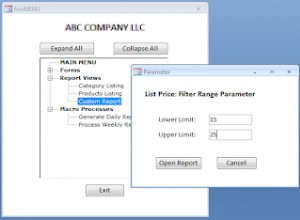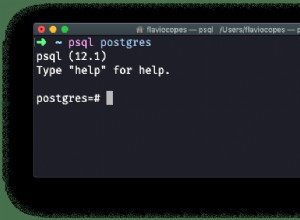Minha primeira ideia, ad hoc, foi implementar meu próprio
IType . public class Sql2008Structured : IType {
private static readonly SqlType[] x = new[] { new SqlType(DbType.Object) };
public SqlType[] SqlTypes(NHibernate.Engine.IMapping mapping) {
return x;
}
public bool IsCollectionType {
get { return true; }
}
public int GetColumnSpan(NHibernate.Engine.IMapping mapping) {
return 1;
}
public void NullSafeSet(DbCommand st, object value, int index, NHibernate.Engine.ISessionImplementor session) {
var s = st as SqlCommand;
if (s != null) {
s.Parameters[index].SqlDbType = SqlDbType.Structured;
s.Parameters[index].TypeName = "IntTable";
s.Parameters[index].Value = value;
}
else {
throw new NotImplementedException();
}
}
#region IType Members...
#region ICacheAssembler Members...
}
Não há mais métodos implementados; a
throw new NotImplementedException(); está em todo o resto. Em seguida, criei uma extensão simples para IQuery . public static class StructuredExtensions {
private static readonly Sql2008Structured structured = new Sql2008Structured();
public static IQuery SetStructured(this IQuery query, string name, DataTable dt) {
return query.SetParameter(name, dt, structured);
}
}
O uso típico para mim é
DataTable dt = ...;
ISession s = ...;
var l = s.CreateSQLQuery("EXEC some_sp @id = :id, @par1 = :par1")
.SetStructured("id", dt)
.SetParameter("par1", ...)
.SetResultTransformer(Transformers.AliasToBean<SomeEntity>())
.List<SomeEntity>();
Ok, mas o que é um
"IntTable" ? É o nome do tipo SQL criado para passar argumentos de valor de tabela. CREATE TYPE IntTable AS TABLE
(
ID INT
);
E
some_sp poderia ser como CREATE PROCEDURE some_sp
@id IntTable READONLY,
@par1 ...
AS
BEGIN
...
END
Ele só funciona com o Sql Server 2008, é claro, e nesta implementação específica com um
DataTable de coluna única . var dt = new DataTable();
dt.Columns.Add("ID", typeof(int));
É apenas POC, não é uma solução completa, mas funciona e pode ser útil quando personalizado. Se alguém souber uma solução melhor/mais curta, avise-nos.




